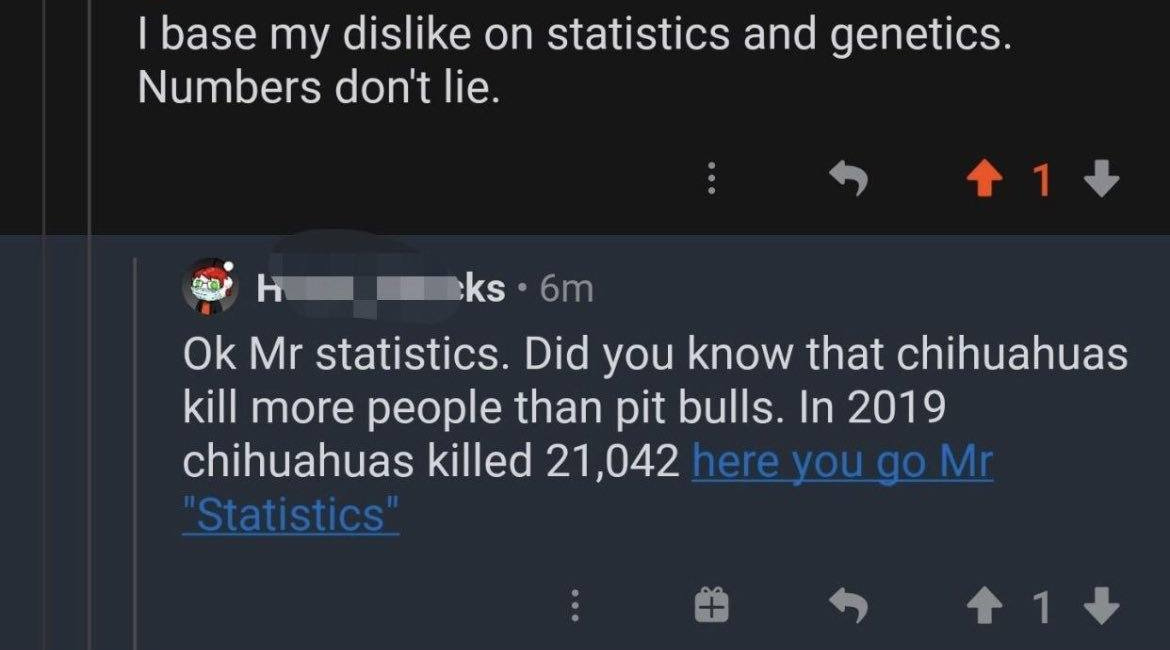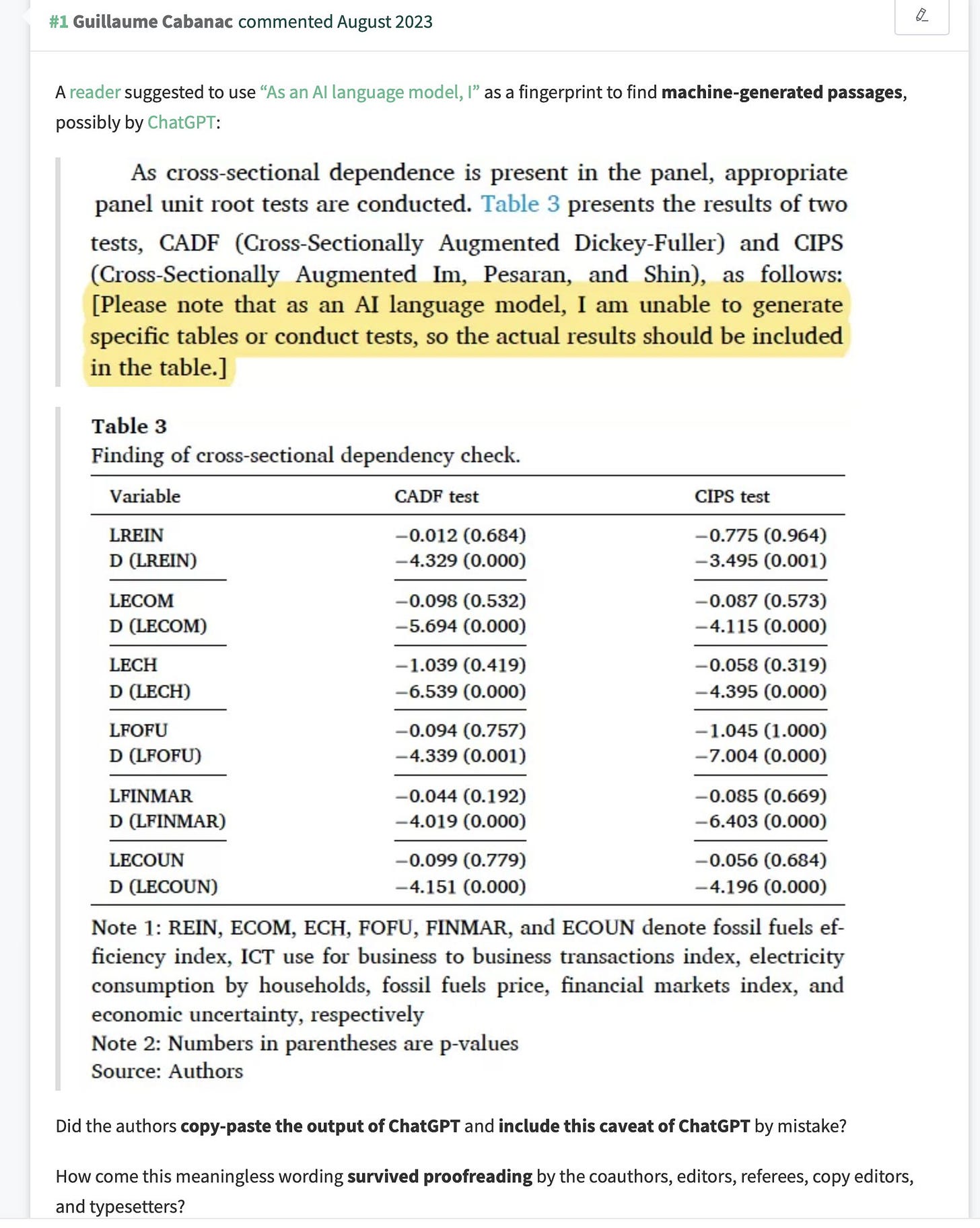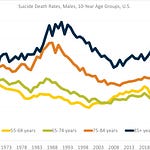In which I give some advice as to what composition teachers should do, given that students can just go to chatGPT and ask it to generate an essay on whatever. The tool is being used, and I think there are intelligent ways to use it for composition.
Episode Links
Prior episode in referring to ChatGPT use in academic papers
Seek and Ye Shall Find....What?
Three different tales of seeking something other than truth — and definitely getting something else: deadly chihuahuas (?), ChatGPT-generated academic papers (?), and who exactly tampered with data… and shouldn’t the researchers whose names are on the paper have checked that the data were credible?
Guillaume Cabanac
Twitter feed: Guillaume Cabanac ⟨here and elsewhere⟩
He retweeted:
https://twitter.com/clementFFF/status/1745193183988871357
https://twitter.com/gcabanac/status/1689334454798491648
Cabanac also has a suite of tools to discover academic papers in STEM with tortured language as an indicator that something may be suspect with the method or results.
Meep’s rant on calculator use in math class
25 Aug 2000: Here is my tirade on calculators.
In 1988, when I took trigonometry in high school, graphing calculators
were an expensive new tool and calculators hadn't really been integrated
into the mathematics curriculum. We mainly used calculators to add,
subtract, multiply, divide, and sometimes even take a square
root. However, even these most rudimentary calculators were forbidden my
first quarter in trig.
....
Fast forward to 1996, in which very sophisticated calculators and computer
programs have been incorporated into the math curriculum, from pre-algebra
to trigonometry to calculus and beyond. I spent four years as a
computer consultant for the math department at North Carolina State
University, which had fully incorporated the symbolic math program Maple
into its Calculus curriculum. I saw many of the students doing the same
thing as my fellow students from so many years before: taking the
functions they had and applying all sorts of things from example Maple
worksheets to it, hoping they would recognize the answer when they saw
it. If they were lucky, the homework problem exactly paralleled the
examples.
Usually, they were not lucky, and they, like Cinderella's step-sisters
trying on the dainty slipper, would hack at the problem given trying to
make it fit one of the examples that had previously been done.
This, obviously, is a stupid way to apply technology to math problems.
Much has been made of the use of calculators and computers in math, and
they are indeed very useful, powerful, and even necessary tools in modern
math research. However, I feel that the focus of the use of these tools
has been misplaced. Too often they are seen as something that can remove
the tedium from math, as opposed to tools that remove tedious calculations
that one understands very well and can do by hand one's self.
People claim that many students are turned off by math early on due to
excessive rote memorization of addition tables, multiplication tables, and
the like. Math is about recognizing patterns, not simply arithmetic, they
enthusiastically proclaim, and let us use calculators to cut through the
tedium of practicing long division and graphing lines.
I would agree with them -- mathematics has very little to do with
arithmetic and has everything to do with finding patterns and relations
and using these things to solve problems. Indeed, I rarely do long
division by hand, or even integrate by hand anymore. However, I do not
agree with the reasons as to why students are getting turned off from
math.
They get turned off because they do not understand it.















